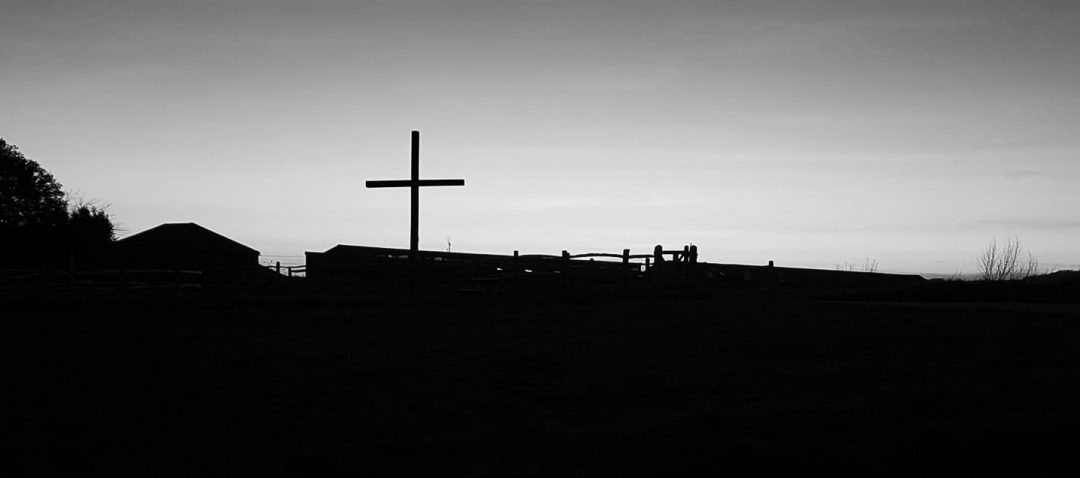Sun 18 March / Lent 5/ Sermon for St Edward’s church
Readings: John 12:20-33; Hebrews 5:5-10
We’ve had 2 passages this morning that are somewhat challenging, but they lead us further into Lent, as we begin to approach Holy Week. We’re going to focus on our John reading this morning. There’s a lot in there:
You’ve got these strange Greeks who come to see Jesus, who are they?
Jesus’ response about a seed falling to earth and dying – a well quoted section of scripture.
And Jesus talking about his death and being obedient to his Father’s call.
But amidst all that is a key verse:
The hour has come for the Son of Man to be glorified.
You might remember earlier in John we have heard Jesus say on several occasions, the hour has NOT yet come. In the narrative in John, today’s passage happens just after Jesus’ triumphal entry to Jerusalem which we will celebrate next week on Palm Sunday.
And now something has changed. The time has come.
So what’s going on here?
The festival the passage talks of in v 20 is Passover. The Greeks had gone to Jerusalem for the Passover festival. Now we don’t know why they want to see Jesus. It is perfectly possible that they saw his entry to the city and wanted to know more. They saw a couple of disciples and saw their chance – let us see him, this man we have heard so much about…
or perhaps this happens a few days after the entry to Jerusalem and they have seen him speak or do other things? Like clearing the temple? And they are intrigued.
Either way something has piqued their interest.
And there’s this sort of chuckle brothers moment when they go to Philip, then Philip goes to Andrew, then they both go to Jesus!
And instead of saying yeah, let them in, or show me where they are so I can talk to them. Jesus gives this little speech:
The hour has come for the Son of Man to be glorified. Very truly, I tell you, unless a grain of wheat falls into the earth and dies, it remains just a single grain; but if it dies, it bears much fruit.
John 12: 23-24
He is of course pointing to himself and what is to come. His death on the cross which will, as we know, bring about much fruit. Many people come to know him. He is essentially saying, if these Greeks want to know more about me and why I am here – this is it, this is what is about to happen. A point which he makes more fully a little later – see v 32:
And I, when I am lifted up from the earth, will draw all people to myself.
John 12:32
All people – that is key – not just the Jews but he will draw everyone to him. Think Acts and all those people from different places being converted.
Here the Greeks represent the non-Jewish people – the rest of the world and so Jesus is saying: You want to know me? Know more about me – this is all you need to know – see what’s coming, see my death as the start of that. Follow what happens to me and you will get your answers.
Jesus uses this example of the seed being sown, a grain of wheat – dying – as it is sown, in order to bring new life.
As each seed goes into the ground, it grows into a stem of wheat, which itself bears the fruit of the ears, which gives us flour amongst other things: Food, sustenance, and the power to produce more is the fruit here.
Jesus’ death will be like this – sowing a seed into the ground. Whilst it will feel awful, look like the worst thing that could happen, it will in fact be a triumph. One which defeats death once and for all. For everyone, including those who are not Jews.
For some reason this sense of the gospel being for all people, for gentiles as much as Jews, and the Greeks who visit and ask to see Jesus; this is a prompt, a clarion call that says the time is near. Jesus knows what has to happen now.
And he goes on – this is not just about him but about everyone:
Those who love their life lose it, and those who hate their life in this world will keep it for eternal life. Whoever serves me must follow me, and where I am, there will my servant be also. Whoever serves me, the Father will honour.
John 12:25-26
This is a message for his followers. There is much more than this life, at stake here. Much more than your life. Perhaps this is a challenge to the Greeks too – to all people – you need to be willing to be planted like a seed too. What you value here is nothing compared to what God has to offer you. Follow Jesus and God will honouryou.
We have seen this in his life so far – disciples encouraged to leave family and friends behind and simply follow Jesus. Leave your home, leave others to bury your loved ones. Come and find a new way of life.
And Jesus, obedient to his father knows what is coming, but even he says at this point:
‘Now my soul is troubled. And what should I say—“Father, save me from this hour”?
John 12:27
He recognises that what God calls us to is costly, can be hard to follow. Even his soul is troubled. But he goes on – no, I know this is God’s calling:
No, it is for this reason that I have come to this hour.
OK, I am all in –
Father, glorify your name
It’s almost as if he is saying look I know this call is costly, I feel it too.
We see this in the Hebrew reading too. Jesus is described as praying in tears and loud cries; as one obedient to his Father in suffering.
Where might we find ourselves in this story? Are we like the Greeks – keen to know more of Jesus? Are we asking: we want to see Jesus? Where is our enthusiasm?
Or perhaps we might ask ourselves are we like Andrew and Philip? Are we acting as gate keeps to Christ? How are we enabling people to meet with Jesus?
Or might we think of ourselves as a seed – how are we growing fruit for God’s kingdom?
Or can we think of ourselves as someone else’s fruit – who was the seed that helped you to see Jesus?
As Jesus found himself at this pivotal moment, the time has come, can we see ourselves at a pivotal moment in Lent? This Sunday is traditionally known as Passion Sunday, the start of ‘Passiontide’. For this period until Holy Saturday the church traditionally focuses on the suffering of Christ. It is that turning point we see in today’s gospel. There is no turning back, Easter will soon be upon us. Christ’s death is now inevitable.
I want to encourage you in these last few weeks of Lent to reflect on what it means to you to be that seed.
Who was the one who planted you?
What have you had to leave behind – to die – to follow Jesus?
What have you suffered and where is Jesus in that suffering with you?
And how are you growing fruit? Bringing glory to the Lord?
I leave those with you…
Amen




No Comments